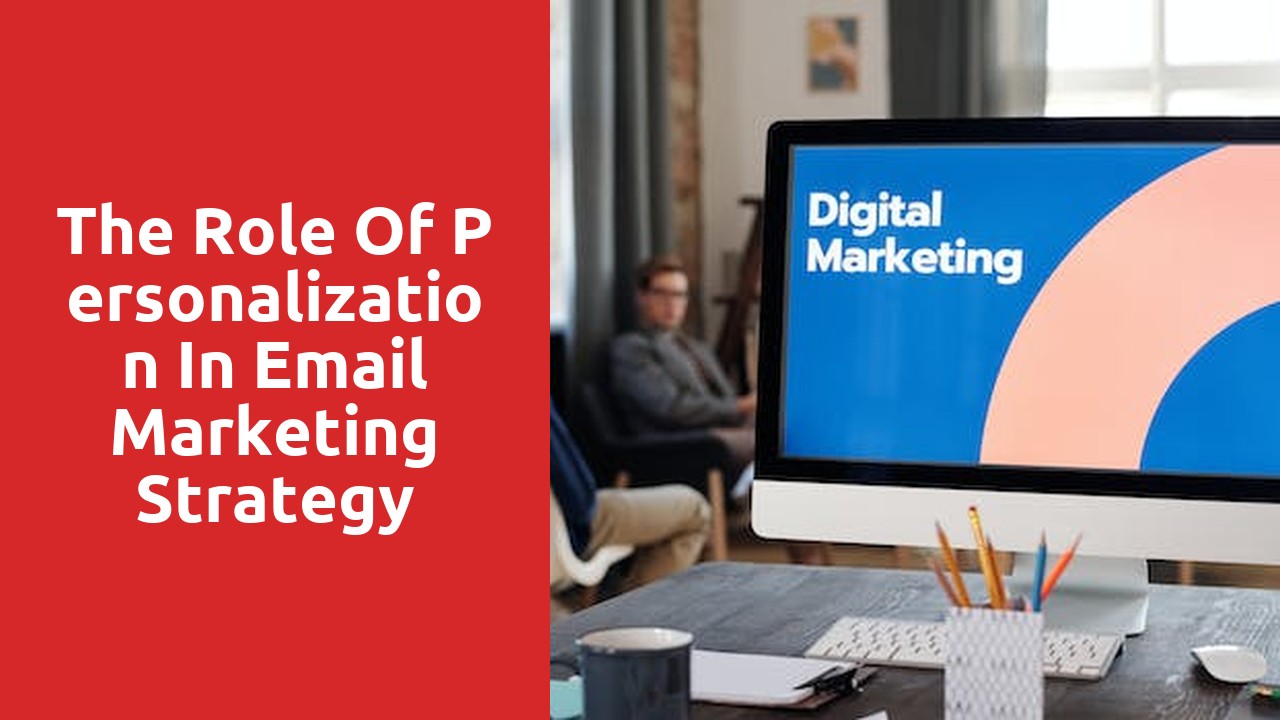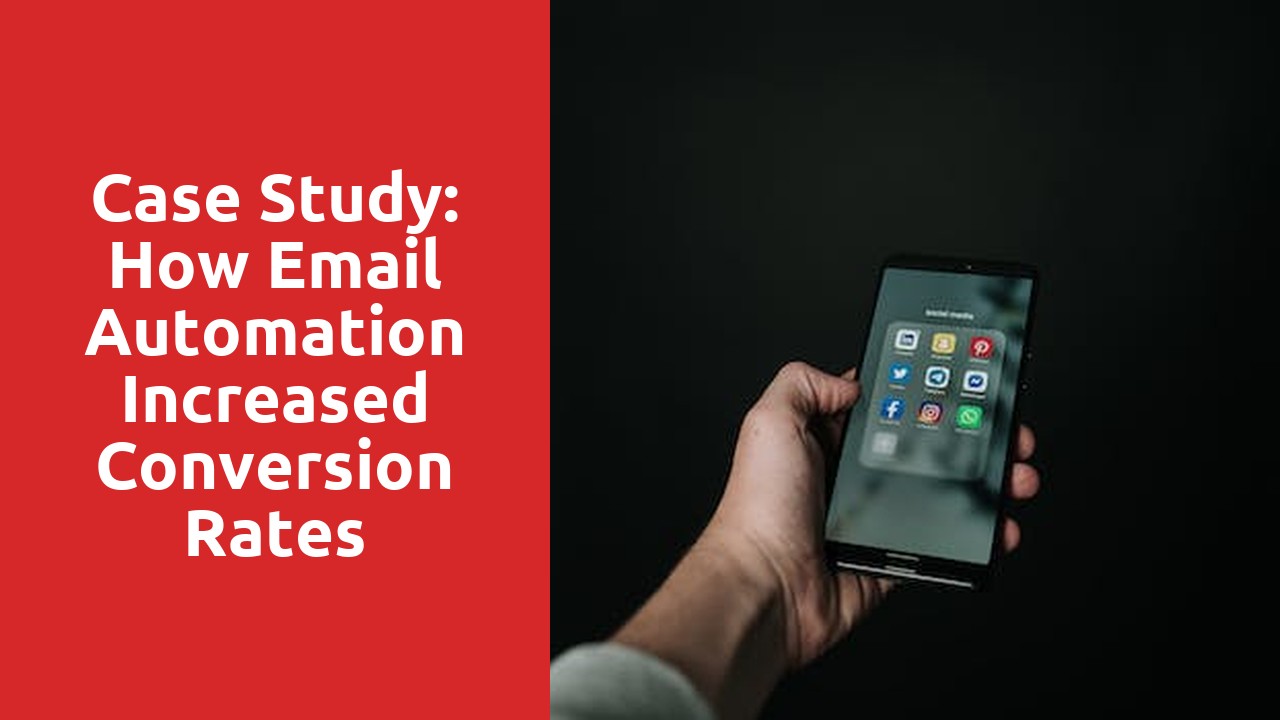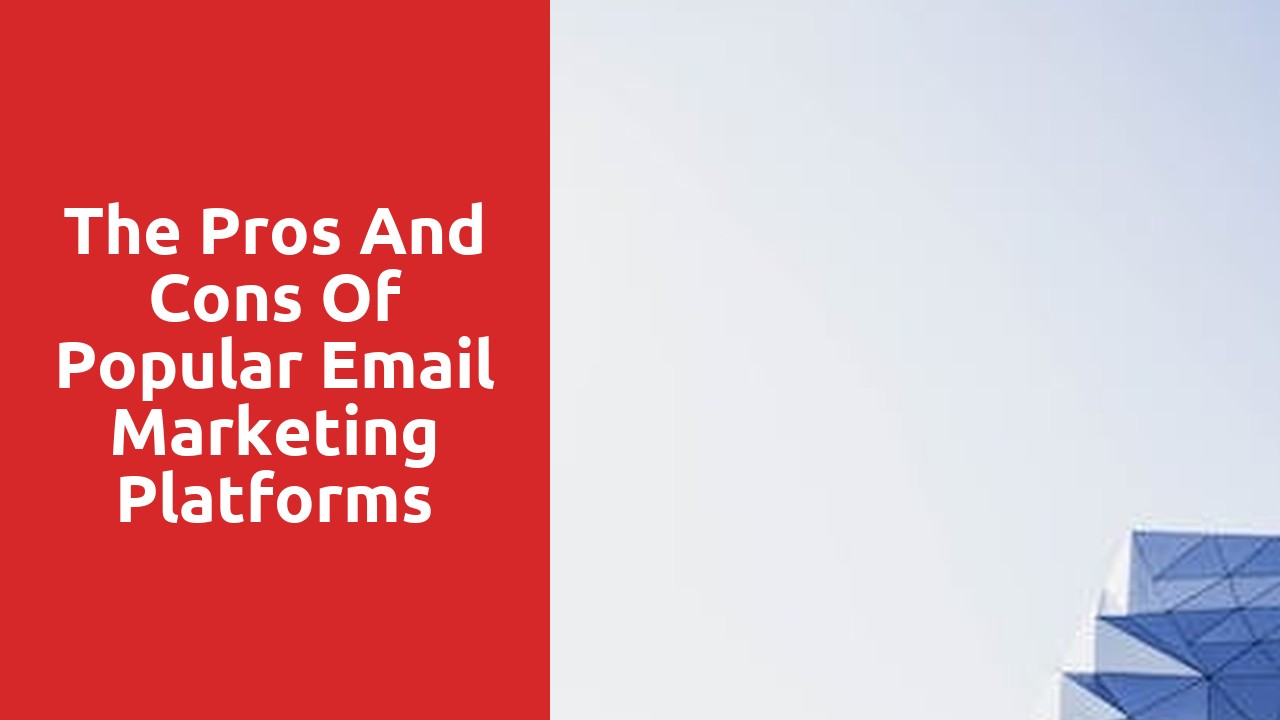The Importance of Personalization in Email Marketing Strategy
In today’s digital age, where consumers are bombarded with countless marketing messages every day, standing out from the crowd is essential for businesses to succeed. One powerful tool that can help companies cut through the noise and create meaningful connections with their audience is personalization in email marketing strategy. By tailoring emails to address the specific needs, preferences, and behaviors of individual recipients, businesses can significantly enhance engagement, boost conversion rates, and ultimately drive revenue.
Personalization in email marketing strategy goes beyond just addressing recipients by their first name. It involves leveraging data and insights to deliver relevant and timely content that resonates with each individual on a deeper level. By segmenting a subscriber list based on factors such as purchase history, browsing habits, or demographic data, companies can deliver highly targeted and personalized content that speaks directly to the interests and needs of each recipient. This level of personalization not only makes customers feel valued and understood, but it also increases the likelihood of them taking the desired action, whether that’s making a purchase, signing up for a webinar, or downloading a whitepaper.
Why Personalization is Crucial for Email Campaign Success
In today’s digital world, where the competition for attention is fierce, personalization has become a crucial aspect of any successful email campaign. Gone are the days of generic mass emails that land straight in the spam folder. With advancements in technology and data analytics, businesses now have the power to tailor their email content to suit the individual needs and preferences of their audience.
The importance of personalization lies in its ability to foster a deeper connection between the sender and the recipient. By addressing each recipient by their name and offering relevant content based on their previous interactions or purchase history, businesses can create a sense of familiarity and trust. This personalized touch not only increases open rates and click-through rates but also helps to build brand loyalty and enhance the overall customer experience. In essence, personalization is no longer just a strategy, but a necessity for email campaign success in today’s competitive landscape.
How Personalization Enhances Customer Engagement in Emails
One of the most effective ways to enhance customer engagement in emails is through personalization. By tailoring the content of your emails to each individual recipient, you are showing your customers that you value and understand them. This can lead to higher open rates, click-through rates, and ultimately, conversions.
Personalization goes beyond simply addressing the recipient by their name. It involves understanding their preferences, purchase history, and browsing behavior to provide them with relevant and timely content. By leveraging data and utilizing automation technologies, you can create personalized emails that resonate with your customers on a deeper level. For example, a clothing retailer can send personalized recommendations based on a customer’s past purchases or browsing history, increasing the likelihood of a purchase. In addition, you can use dynamic content and targeted offers to further customize the email experience and drive engagement.
The power of personalization lies in its ability to make your customers feel seen and valued. When they receive an email that is tailored to their needs and interests, they are more likely to engage with it and take the desired action. Personalization helps you cut through the noise of generic marketing messages and establish a stronger connection with your customers. In today’s competitive digital landscape, where attention spans are shorter than ever, personalization can be the key to standing out and driving customer engagement in your email campaigns.
The Power of Customized Email Content in Driving Conversions
Many businesses today are leveraging the power of customized email content to drive conversions. By tailoring their emails to individual recipients based on their preferences, behaviors, and demographics, companies can create a personalized experience that resonates with their target audience. This level of customization not only increases the chances of capturing the recipients’ attention but also enhances the likelihood of them taking the desired action, whether it’s making a purchase, signing up for a newsletter, or attending an event. Effective customization goes beyond simply addressing the recipient by their name; it involves understanding their needs, interests, and pain points and delivering highly relevant content that meets their specific requirements.
The ability to customize email content provides businesses with a powerful tool to nurture relationships and build trust with their customers. When recipients receive an email that speaks directly to their interests and preferences, they are more likely to engage with the content, spend more time reading and exploring it, and ultimately take the desired action. By showing that they understand their customers’ needs and are willing to deliver content that caters to those needs, businesses can establish themselves as a trusted source of information and solutions. This trust, once built, can lead to increased customer loyalty, repeat purchases, and positive word-of-mouth recommendations, all of which contribute to improved conversions and long-term business growth.
Segmentation: A Key Component of Personalized Email Marketing
Segmentation is a critical factor in personalizing email marketing campaigns. By dividing your target audience into specific groups based on their demographics, interests, or behaviors, you can tailor the content of your emails to be more relevant and engaging. For example, if you are a clothing retailer, you can segment your subscribers based on their gender, age group, or even their preferred style. This way, you can send targeted emails showcasing the latest trends, exclusive offers, or recommendations that align with each group’s preferences.
One of the benefits of segmentation is that it allows you to deliver the right message to the right people at the right time. By knowing your subscribers’ preferences and interests, you can send them emails that speak directly to their needs and desires. This level of personalization not only increases the likelihood of engagement but also enhances their overall experience with your brand. In turn, this can lead to higher conversion rates, increased customer loyalty, and even word-of-mouth referrals. So, segmentation is not just a fancy marketing tactic; it is an essential tool for achieving email marketing success.
The Role of Data Analysis in Crafting Personalized Email Campaigns
Crafting personalized email campaigns has become an integral part of marketing strategies in today’s digital era. However, the success of these campaigns relies heavily on the effective use of data analysis. Data analysis allows marketers to gather insights about their target audience, their preferences, and their behavior, enabling them to tailor their email content accordingly.
Through data analysis, marketers can identify patterns and trends, enabling them to create campaigns that resonate with their audience on a more personal level. By analyzing data such as demographics, past purchase history, and browsing behavior, marketers can segment their email lists and send targeted messages to specific groups. This personalized approach not only increases the chances of engagement but also boosts conversion rates. Additionally, data analysis offers valuable feedback on the performance of email campaigns, allowing marketers to optimize their strategies and make data-driven decisions.
In conclusion, data analysis plays a crucial role in crafting personalized email campaigns. By harnessing the power of data, marketers can enhance the effectiveness of their campaigns, drive engagement, and ultimately, achieve their marketing goals. With the wealth of information available, it is imperative for marketers to leverage data analysis tools to ensure that their email campaigns are both relevant and impactful.














